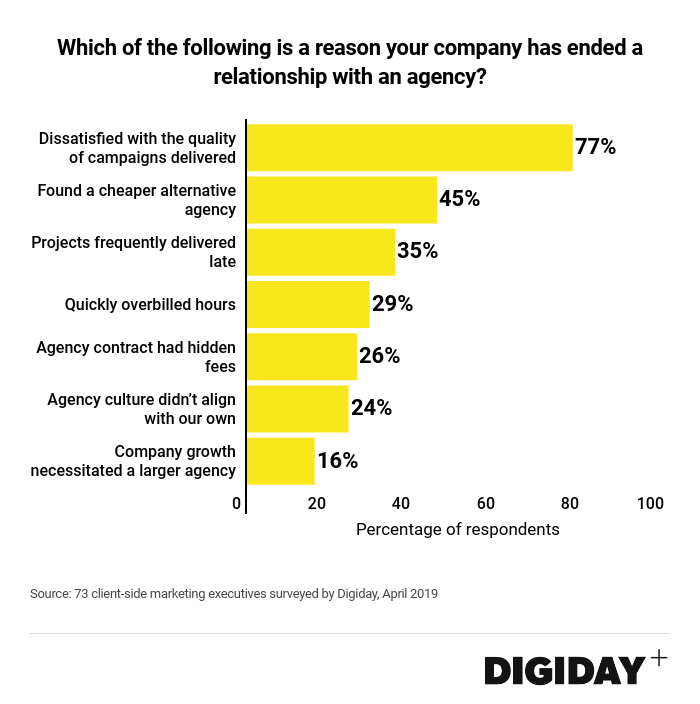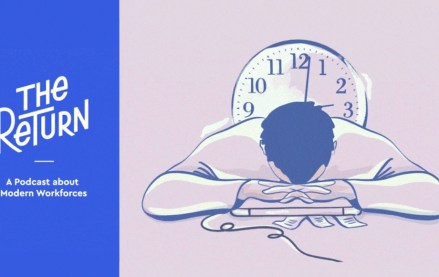This research is based on unique data collected from our proprietary audience of publisher, agency, brand and tech insiders. It’s available to Digiday+ members. More from the series →
Like any normal relationship, the ones shared between clients and agencies aren’t always meant to last. While a number of contributing factors can cause a client to leave their agency, failure to deliver effective campaigns is the most common reason why things fall apart.
When asked why they have ended a relationship with an agency, 77% of 73 client-side marketers said underperforming or low-quality campaigns was a key reason why in a survey by Digiday this April of client-side executives responsible for their company’s agencies relationships.
Other issues like disparate cultural identities and cost-cutting also played a role for some. Forty-five percent of respondents said they left agencies for a cheaper alternative while a quarter did so because they felt the agency’s culture was not properly aligned with theirs.
Meanwhile, growing scrutiny over contracts and agency billing and hidden fees is enough for clients to make a change. Twenty-six percent of marketers ended agency work due to hidden fees 29% due to overbilling.
“When managed well, with regular performance evaluations, any performance issues can be flagged in advance before they become an irreparable problem. And clear expectations and actions for course correction can be set and aligned between the client and agency,” said Stephan Schwarz, a consultant at ID Comms.

Additional problems, like overbilling and hidden fees, while popular subjects at the moment, are likely to become less of an issue over time.
“Transparency between clients and agencies is becoming much less of an issue,” said Graham Brown, co-founder of MediaSense. “Clients are increasingly taking on the mantle of governance regarding their contracts and are being more judicious about the terms in them,” he added.
But those issues are unlikely to disappear entirely according to Avi Dan, a consultant that helps clients with agency reviews.
“Clients are the ones writing the contracts. Holding companies have a small army of lawyers but the one or two lawyers on the client-side are not typically specialists in media,” he said. “There is a tremendous pressure on the client to reduce costs. Media is a very clear way of going about it.”
There are also less-discussed reasons such as high turnover within agencies for why clients search for new partners.
“Constant changes in agency personnel assigned to the account mean inefficiencies as clients end up paying for new employees to learn the nuances of the client’s scope of work,” said Lorraine Stewart, founder and chief executive officer of Rojek Consulting Group.
More in Marketing

With the rise of the chief AI officer, it’s time to examine ‘czar’ culture
Even if it’s a familiar pattern — hot new thing, new C-Suite exec to tackle said thing, a few years go by and that C-Suite position no longer exists as everyone is now doing said thing (or it was a fad that has since faded away) — does it make sense for businesses to continue to appoint new czars with every new trend?

Why Cava’s bid for brand awareness means prioritizing streaming ads
Fast-casual restaurant chain Cava has been in growth mode over the past year and is leaning into streaming ads in an effort to boost brand awareness.

A history of middle manager stress: The Return podcast, season 3, episode 1
In episode one, McKinsey partner Emily Field tells us more about why middle management is critically important to the workforce.





